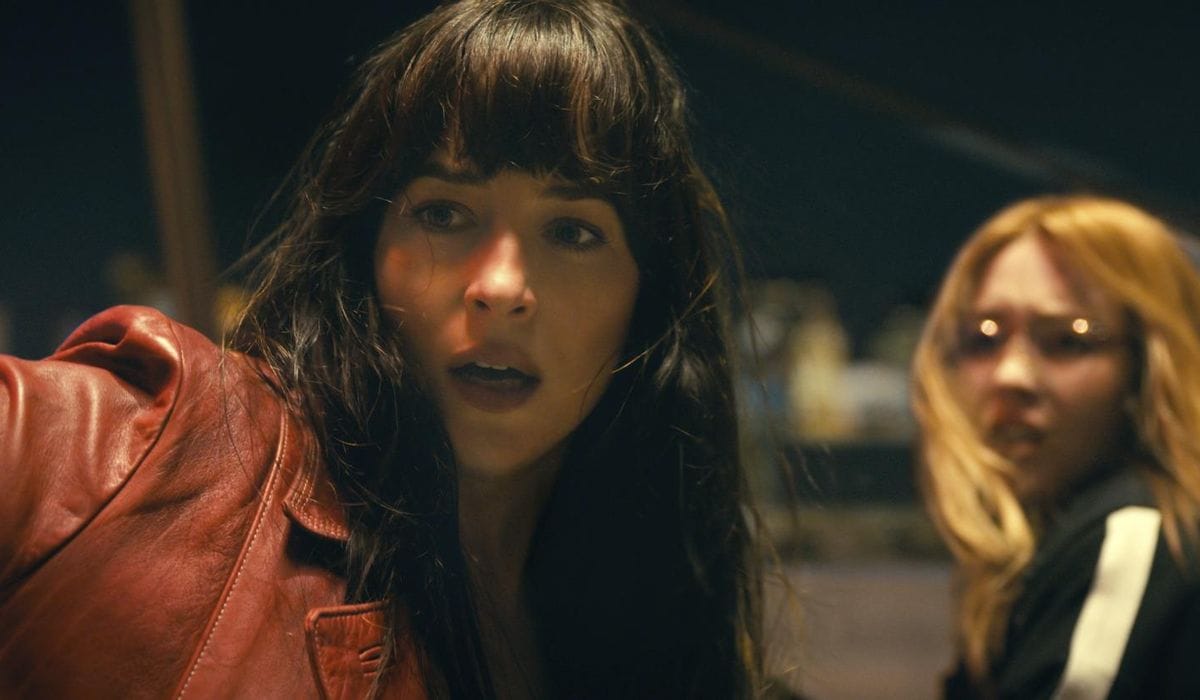Madame Web could never have gotten off on the right foot. It’s coming amid a superhero bust, for one—the MCU has overworked itself into a soulless content mill, DC is honoring its source material by starting all over again, and Sony is still floundering in the corner, dropping Marvel-adjacent duds like Venom and Morbius. (To my dismay, this universe too has an acronym: the SSU, “Sony’s Spider-Man Universe.” There’s a Wikipedia page for it. Mankind used to write epics.) Madame Web, a distinguished member of the SSU, was memed into oblivion when all that existed was a trailer, so any foot forward would have been the wrong one. Defiant of this, the film shoots itself in both feet.
READ ALSO: Read all of Ryan Bordow’s movie reviews here
It’s almost respectable how immediately awful this is; you could never blame it for raising your expectations. We open in the Amazon on a scientist and her partner, and within seconds of seeing their faces, they’re talk-vomiting plot points like living opening crawls. They’re looking for a rare spider whose “peptides have supercharged their cellular structure” and whose venom could “cure hundreds of diseases,” dialogue as convincingly scientific as MCU quantum-speak; also, there’s a secret tribe of spider-people, “Las Arañas,” who live in the Peruvian jungle, better talk that out at length; also also, the scientist is pregnant and keen to remind the audience. It’s a lot of upfront exposition. And then it gets worse: in a sprint of shaky shots and awkward zooms, the scientist finds the spider, her partner fatally wounds her and escapes with the spider, and the Peruvian spider-men descend from above to save the scientist’s baby. It happens so fast that my only clear memory is the poor VFX.
With the prologue out of the way, we catch up with said baby in 2003, and she’s Cassie Webb, New York paramedic, listening to “Miles Away” by the Yeah Yeah Yeahs so the soundtrack can have the word “spider” in it. Cassie knows her mother died in the Amazon, but the circumstances of her birth are as unknown to her as her upbringing is to us (she gets clarity; we don’t). When a brush with death triggers powers left to her by Las Arañas, her consciousness is hurtled through the Web of Life and Destiny, a cosmic expanse where the threads of fate fan out like visible webs—potentially the film’s most interesting image if it weren’t rendered like an Unreal Engine cutscene.
Cassie wakes up able to see the future, essentially a souped-up spider-sense. Visually, it works like Final Destination: rapid-cut visions of incoming tragedy that fade just in time to act. These visions aren’t tremendously cinematic, but the way they blur into reality is purposefully disorienting, a qualifier that does not apply to the rest of the editing (one scene is so choppy that a character seems to teleport into frame). Having visions elsewhere in the world is Ezekiel Sims, Cassie’s mother’s former partner, who dreams of three Spider-Women defeating him in the future. Sims resolves to kill them before they gain their powers, employing, uh, NSA facial recognition technology to narrow down their locations. Madame Web dips its toe into surveillance commentary and then never touches it again. That’s pretty much its M.O. for all its ideas.
The plot centers on Cassie protecting these three women, whom she envisions in danger and summarily whisks away. They don’t have their powers yet; they’re teenagers, and some of the most thinly sketched characters ever to grace the genre. There’s rebel girl, naïve girl, and girl who knows science. I’m not being any more reductive than the script. And Cassie, laughably, is a bored Dakota Johnson, delivering lines like “that man is trying to kill you” and “get to the helicopter” like she’s about to slip back into a coma. Together, this ragtag group of non-characters will barely get to know each other and have a few forced full-circle moments, like the one skill Cassie teaches the girls being essential in the climax (and only for the most contrived of reasons).
I never felt anything for these characters beyond secondhand embarrassment. This makes the final battle—the only one where the team fights together instead of fleeing—profoundly difficult to care for. And the action is just as sterile: by the end, the movie has given up on showing us Cassie’s visions, so all we see is her effortless navigation of fights she envisioned off-screen. Nothing is exciting about this. At least, I don’t know, slow down time like Ritchie’s Sherlock Holmes so we can see Cassie assess her options. The only real payoff the third act manages is capping off increasingly blatant instances of Pepsi product placement.
Madame Web wants to do everything as the crow flies: the fastest, laziest route through every scene and thought. It needs Cassie to have an emotional arc, so it briefly mentions a grudge she’s holding and resolves it just as quickly. I’m not sure the presence or absence of this grudge ever factors into her actions. It needs to be a Spider-Man story, so it drops a clumsily worded remix of the power/responsibility proverb (“When you take on the responsibility, great power will come”) without ever exploring what this change means in action. It just rushes through itself. I’ve rarely seen a movie so impatient to get itself over with.
What it’s rushing to, ostensibly, is the sequel it hopes to financially justify. We’re teased with promises of what could be: visions of the Spider-Women in full (ridiculous) costume, exuding a CW-esque cheesiness more appealing than the rest of the movie. Now, I’m no studio exec, but my question is this: instead of making a deeply vacuous origin story as a teaser for a fun movie, why not just make the fun movie? To give us something to look forward to? Cassie seems to say so in her profound final thought: “You know the best thing about the future? It hasn’t happened yet.” Maybe, but the worst thing about now is that it sucks.
(0/5)




